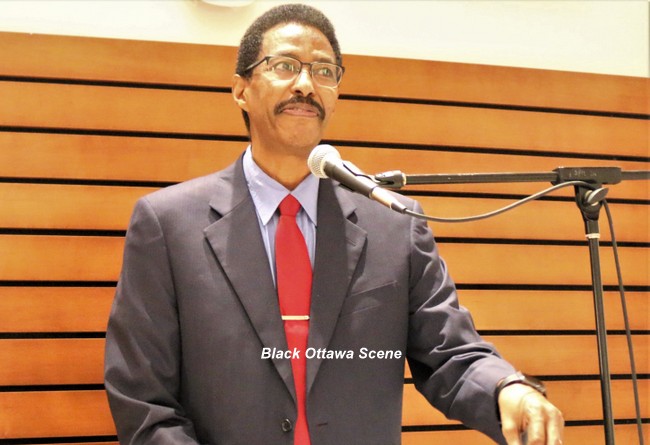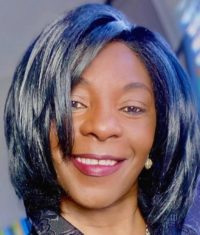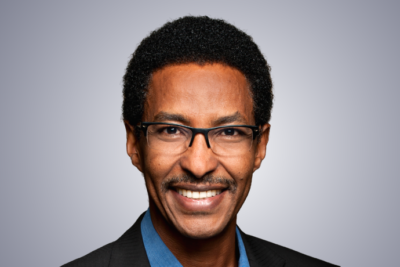
Wednesday 2 November 2022
by Joy Osiagwu
AWAD IBRAHIM APPOINTED PROFESSORSHIP ON ANTI-RACISM.
The first holder of the Air Canada position under the Faculty of Education, University of Ottawa.
Diversity and inclusion form the bedrock of Canadian identity to Canada and the world. However, a critical mass of Canadians in conversations at various fora on anti-racism would tell you that there are deeper problems around the subject of Equity, Diversity, and Inclusion (EDI).
The official inauguration and launch of the Air Canada Professorship on Anti-racism and the appointment of Professor Awad Ibrahim to the role at the University of Ottawa on November 2nd, 2022, was a good forum for engaging conversations around the subject matter.
Air Canada established the professorship in honor of Calin Rovinescu, an Immigrant who craved a space for dialogue on anti-racism and related issues and served as the University of Ottawa’s Chancellor from 2015-2022. He also served as the President and Chief Executive Officer of Air Canada from April 2009 until his retirement in 2021.
Rovinescu, who joined the launch online said Air Canada made the decision to set up the professorship on Anti-racism on its own, on his retirement. However, he was honored and excited about the laudable initiative which would create a good space for people to speak up against systemic racism which has been in existence for ages.
Rovinescu expressed his excitement at the emergence of the project and proud of the first holder of the position, given his rich background in issues related to systemic racism.
Professor Awad Ibrahim of the Faculty of Education is the first to hold the new position at the University of Ottawa. Ibrahim’s broad perspective on the collective work on anti-racism over the years would be helpful in the academic and community partnership work in the next five years as he builds on the Faculty of Education’s expertise and future aspirations for equity, diversity, and inclusion in education.
A full professor and a Curriculum theorist, Ibrahim has a penchant for cultural studies, Black popular culture, the economy of hospitality, social justice, community service, and diasporic and continental African identities. His academic background created a clearer picture of the constructive discourse at the inaugural event and the appropriateness of his selection for the new position.
People from all levels of society in Canada and other parts of the world joined colleagues, friends, and the faculty in person and online, to listen to Professor Ibrahim’s presentation titled: “Thinking through the work of anti-racism: A poetic conversation expanding from arts to politics.”
While commending the bold strides of Air Canada, Professor Ibrahim drew attention to the meaning of life and “our roles” as poets and actors, using illustrations from various works of art, pointing to the gaps and blind spots of thoughts that society preferred not to address. He cited familiar examples of racism, xenophobia, Islamophobia, Sexism, Anti-semitism and ethnic supremacy in Canada.
Professor Ibrahim outlined core anti-racism principles to give a better perspective to the issues in dire need of attention in the ongoing conversation on anti-racism.
A critical understanding of history by acknowledging and recognizing the “shoulders upon which anti-racism Scholarship was build” would help in navigating a path to a better future, he said.
What makes anti-racism vital is the ability to “explicitly identify the social issues of social difference as issues of power rather than a matter of cultural and ethnic variety he remarked.
Anti-racism stands out to Ibrahim because it does not acknowledge any form of oppression; rather, it concerns all, not just minority groups, but also the majority, because they “control the world” and have a greater responsibility in terms of social impact. Ibrahim referred to the majority here in the context of institutionalized power instead of numbers.
He gave an analogy of women being the majority in number but on the other hand “minoritized” due to lack of access and proximity to power, depicting a picture of “institutionalized power” that is focused on a reservoir of privilege for a few.
The scholar called for all to focus on leadership with institutional change ideology in Canada, while reflecting on the work of anti-racism to “take a different path than what we inherited“.
Professor Ibrahim concluded his poetic analyses by encouraging his Canadian audience not to interpret the presentation as a rebuke of Canada but a constructive and courageous evaluation of where “we could be as Canadians.” He emphasized that Anti-racism or Equity, Diversity and Inclusion should be seen as an act of love, stressing that Canada has a lot to offer, especially to Indigenous people, by moving a step further from peace to social welfare and inclusion.
The plan for the work with Air Canada would create an anti-racism institute hosted at the University of Ottawa with three levels and a national competition called “Canada Deals with (Anti-) Racism! The essence is to create a space for young people across Canada to express individual opinions about combating racism, anti-Black racism, anti-homophobia, Indigenous racism, and Islamophobia.
The art would be designed for Air Canada Magazines, Duty-Free magazines, and the commentaries of flight attendants.
“For example: You are on a flight from Calgary to Ottawa and on arrival, you hear the flight attendant; “Ladies and Gentlemen, welcome to Ottawa, our national capital… Did you know that “Ottawa” originated from the Algonquin word adawe, meaning “to trade? It refers to the Indigenous peoples who used the river to trade, hunt, fish, camp and harvest plants for other traditional uses.”
That was a good example of inclusion in a simple but educative method to drive attention to the history of the Indigenous peoples of Canada as envisaged for the Air Canada Professorship on Anti-racism project ahead.
Professor Awad Ibrahim promised that the collective effort of Air Canada would become an answer to young and bold hopefuls like Mustafa Ahmed from Toronto, who began speaking truth to power thirteen years ago, about “the ridiculous injustices everywhere and the lack of awareness and avenues for help” in a YouTube video played at the event as part of the inauguration ceremony.

Joy Osiagwu is a Project Officer with Black History Ottawa. She has over two decades of experience as a broadcast journalist in Nigeria and North America. She holds a Master of Business Administration (MBA) degree from the University of Cumbria in the United Kingdom, plus a post-graduate diploma in Broadcast Performing Arts from the Columbia Academy, Vancouver, British Columbia.


